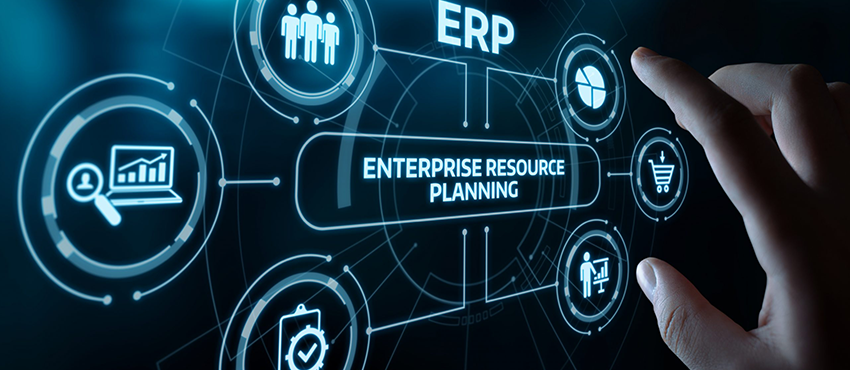INSIGHTS
Enterprise Resource Planning
ODS Consulting Group
05.09.2023
What is Enterprise Resource Planning?
Enterprise Resource Planning, called ERP, refers to a software system that companies and organizations use to manage some parts of a business, such as human resources, accounting, supply chain, procurement, manufacturing, customer services, sales, production, and distribution. This system helps to share this information in real time between different functions to manage the businesses correctly.
So, it can be said that ERP is all about the core business processes required to run a company or an organization.
For those who want to take a closer look at the ERP system that helps companies or organizations manage these most critical processes, the details are listed below:
What are the Benefits of Enterprise Resource Planning?
1. The ERP system provides great convenience for companies by helping different businesses to communicate their workflows to each other from one place in real-time. In companies that do not use the ERP system, reports and business records are created and reviewed independently of each other, making the process quite long and complex. Using ERP saves this process from repetition and makes it easy for employees and managers.
2. With the ERP system, you can also easily follow your company’s production, sales, and distribution processes. This quickly eliminates potential problems that may occur.
3. Another important benefit of this system is to eliminate the barriers between different departments within the company. Since it keeps the information flow between departments active, information flows are realized thanks to this system very easily.
What is an example of an ERP?
To give an example to make it clearer, when ERP is applied in a supply chain industry, this system directly performs financial analysis and checks the available product stocks in the future to detect a problem. After providing inventory control, necessary information flow is provided to the manufacturing department for future productions, helping to keep the demanded products and the product quantities in the warehouse sufficiently balanced.
What Should an ERP System Include?
The ERP system, which performs many operations within its structure, provides great convenience in providing critical workflows for large companies and organizations. There are many important parts in these flows, but to give an example of the most important five, the following can be said;

1. Finance,
2. Human Resources,
3. Manufacturing and Logistics,
4. Customer Relations,
5. Supply Chain Management.
Why is an ERP System Important?
Companies and organizations need automation, integration, and intelligence in order to carry out their operational flows accurately and efficiently, all of which are done in real-time through the ERP system. All these data are collected and stored in these systems and are necessary for companies to make healthy progress.
In order to follow these processes correctly, the existing data within the company should be stored on a software system to prevent detailed analyzes from being overlooked. Therefore, the ERP system collects all available data in one place, making it easier for companies and organizations to evaluate and analyze the information they need.
How Does ERP System Work?
The ERP system has an area where all information is gathered in a commonplace. In this area, information belonging to each department is collected and separated. There are ERP modules available for this information, and these modules are divided according to the appropriate business areas. This data is used jointly to meet the needs of the companies. Companies can benefit from this data by choosing between these modules according to their needs.
Types of ERP Deployment:
ERP systems can be customized and distributed in line with the needs of companies. These systems, which are suitable for various uses, have multiple options for the needs of the users. For example:
• Cloud ERP: Cloud ERP is one of the most preferred deployment methods; it stands out for its support for public and private use.
With Cloud ERP, while the software is in the cloud, it can also be sent to the desired location via the internet.
Many people prefer it because it can be used at low costs while its use is wide-ranging.
• On-Premise ERP: This ERP system is used with the most traditional methods, and all data controls are managed by the workers. You have the opportunity to set up data centers wherever you want by choosing the options you want.
• Hybrid ERP: Some companies want to both store their data on the cloud and use it by their employees with the traditional on-premise PRD model. The use of this binary option is called the Hybrid PRD system.

Who Uses ERP?
The main aim of the ERP system is to facilitate the management of all information in the companies. This information impacts the companies’ decisions, and in order to evaluate this information correctly, they use ERP systems. That’s why it can be said that companies and organizations mostly prefer these systems.
What are the Signs that You Need ERP?
Information input and output occur continuously in companies and organizations. There is no limit to this information, and each piece of information must be continuously recorded and reviewed for things to be done correctly.
Although some of these inputs and outputs are generally followed through files such as Excel, manual entries are sometimes insufficient. Precisely for these situations, ERP systems are critical to eliminate these kinds of problems.
Another reason is that saving the data you have with different computer programs may cause some information to be overlooked at critical points.
It is impossible to continuously follow such an intensive review from different files, so using an ERP system allows you to see all the data you have clearly and keeps the most critical information for you constantly available.
Suppose you have to deal with the points constantly overlooked in your workplace and therefore have problems in your work. In that case, the ERP system will make your work much easier than traditional methods, especially in large and complex works.

